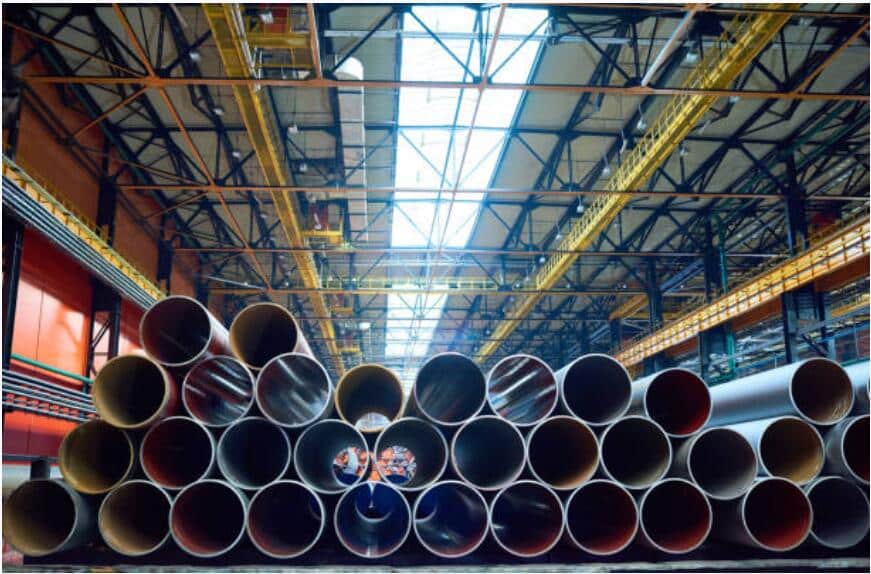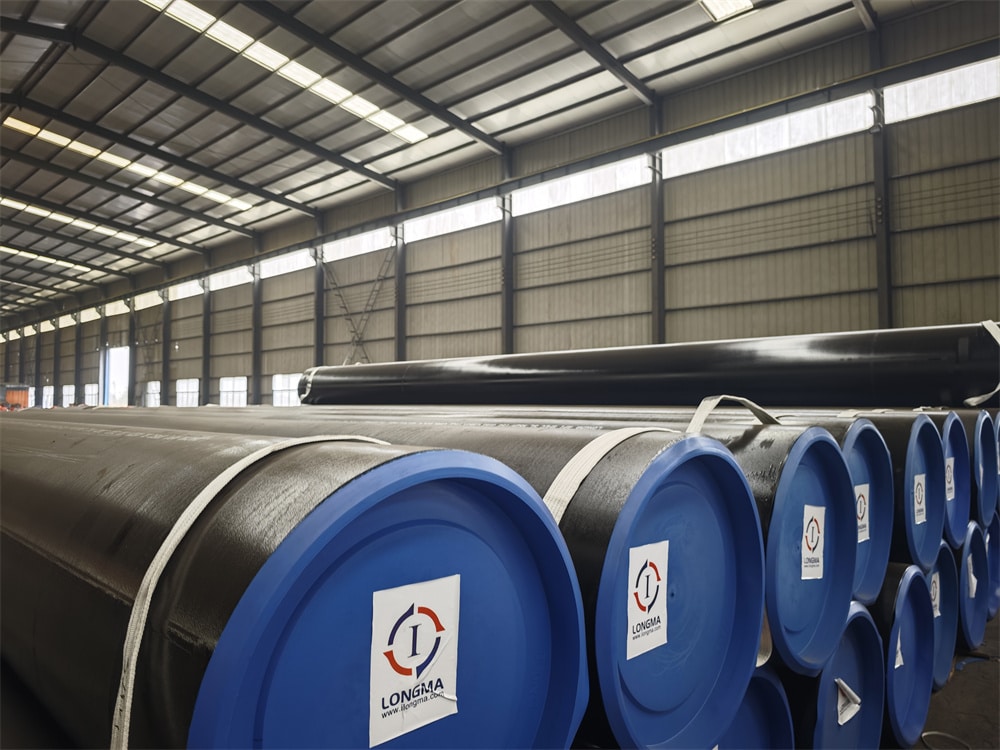When selecting steel pipes for structural or transportation purposes, EN 10219 and API 5L are two widely adopted international standards. They differ significantly in terms of steel grades, applications, production processes, testing methods, and application fields. So, which standard should your project choose? This article will analyze the differences between EN 10219 and API 5L from multiple perspectives to help you make an appropriate choice.
Comparison of Steel Grades
| Comparison Items | EN 10219 | API 5L |
| Common steel grades | S235JRH, S275J2H, S355J2H | Gr. B, X42, X52, X60, X70 |
| Yield strength range | 235–355 MPa | 245–485 MPa (depending on the grade) |
| Application focus | Structural load-bearing, building support | Oil and gas transportation, high-pressure transmission pipelines |
EN 10219 steel pipes mainly focus on structural performance and are suitable for fields such as construction and mechanical structures that require strength and welding performance. API 5L steel pipes, on the other hand, are specifically designed for oil and gas transportation, emphasizing high strength and corrosion resistance.
Comparison of Applications
Applications of EN 10219 steel pipes:
- Steel structure buildings (bridges, factories, scaffolding, etc.)
- Industrial equipment support frames
- Aerial work platforms, port facilities
- Special machinery structures
Applications of API 5L steel pipes:
- Natural gas and oil transmission pipelines
- Long-distance high-pressure pipeline systems
- Offshore platform transmission pipelines
- Water transmission pipelines and industrial fluid pipelines
If the project requires medium transportation (such as oil, gas, water), API 5L should be preferred; if it is for structural load-bearing or engineering support, EN 10219 is more suitable.
Comparison of Production Processes and Testing Items
| Comparison Items | EN 10219 | API 5L |
| Forming method | Cold bending forming (cold working) | Hot rolling or cold forming |
| Welding method | ERW (Electric Resistance Welding) / LSAW (Longitudinal Submerged Arc Welding) | ERW / LSAW / SSAW (Spiral Submerged Arc Welding) |
| NDT (Non-destructive testing) | Ultrasonic or X-ray testing as required | Mandatory ultrasonic/X-ray testing (especially for welds) |
| Factory certification | EN 10204 3.1/3.2 | API Q1, ISO 9001, API Monogram |
| Routine testing | Dimensions, chemical composition, mechanical properties, impact test | Hydrostatic test, impact test, hardness test, flattening test, etc. |
EN 10219 pays more attention to the structural stability of products; API 5L emphasizes the safety of medium transportation, so its testing standards are stricter.
Comparison of Usage Frequency in International Projects and Case Analysis
In international projects, steel pipes complying with EN 10219 are frequently used in construction and municipal engineering in Europe and some Asian countries. Steel pipes meeting API 5L dominate oil and gas transportation projects worldwide. Specific applications are as follows:
Typical applications of EN 10219:
- Steel structure of Beijing Daxing International Airport Terminal (China)
- Steel structure support of Crossrail urban rail in the UK
- Structural support of NEOM urban construction project in Saudi Arabia
Typical applications of API 5L:
- Sino-Russian Eastern Route Natural Gas Pipeline (China, Russia)
- Keystone XL oil pipeline project (USA)
- North West Shelf Gas Development Project in Australia
Large international projects generally select standards according to project needs. For example, construction projects mostly use EN 10219, while transmission pipelines choose API 5L. Therefore, it is crucial to understand the usage frequency of standards when bidding for international projects.
How to Choose the Right Product for the Project?
The choice between EN 10219 and API 5L depends on the following factors:
- Project purpose: Structural load-bearing → EN 10219; Fluid transportation → API 5L;
- Design standards: EN 10219 is mostly adopted in European/Middle Eastern structural projects; API 5L is used in oil pipeline projects;
- Climatic environment: EN 10219 S355J2H is required for low-temperature structures; API 5L X65/X70 is needed for extreme transportation;
- Certification requirements: For projects subject to government or third-party audits, the selection should be based on the requirements in the bidding documents;
- Budget and delivery cycle: EN 10219 has relatively more controllable costs and more flexible delivery.
Why Choose LONGMA?
LONGMA is a steel pipe manufacturing enterprise located in Hebei, specializing in the production of round pipes (ERW and LSAW) complying with EN 10219 and API 5L standards. Reasons to choose LONGMA are as follows:
- Complete standards: Capable of producing various steel grades such as EN 10219 S235JRH/S355J2H and API 5L Gr.B/X52/X70;
- Dual standard certification: Certified by ISO 9001, EN10204 3.1, and API 5L, meeting diverse project needs;
- Strong customization capability: Able to provide fixed-length, thick-walled, and reducer specifications according to customer requirements, satisfying special projects;
- Global export experience: Products are exported to Southeast Asia, the Middle East, South America, and other regions, serving multiple international projects;
- Efficient delivery system: With a stable raw material supply chain and its own wharf, ensuring fast delivery.
Whether your project has requirements for structural safety, transportation performance, or international standards, LONGMA can provide high-quality steel pipe products that meet standards and customized solutions.
In conclusion, the choice between the two depends on project needs. EN 10219 and API 5L have different focuses in terms of standard attributes, application fields, technical requirements, and testing standards. A correct understanding of their differences is a prerequisite for ensuring the smooth implementation of the project. In the early stage of project planning, it is essential to clearly identify the usage scenarios and technical requirements of the steel pipes. If necessary, you can consult LONGMA, and we will provide you with comprehensive selection suggestions and material support.



